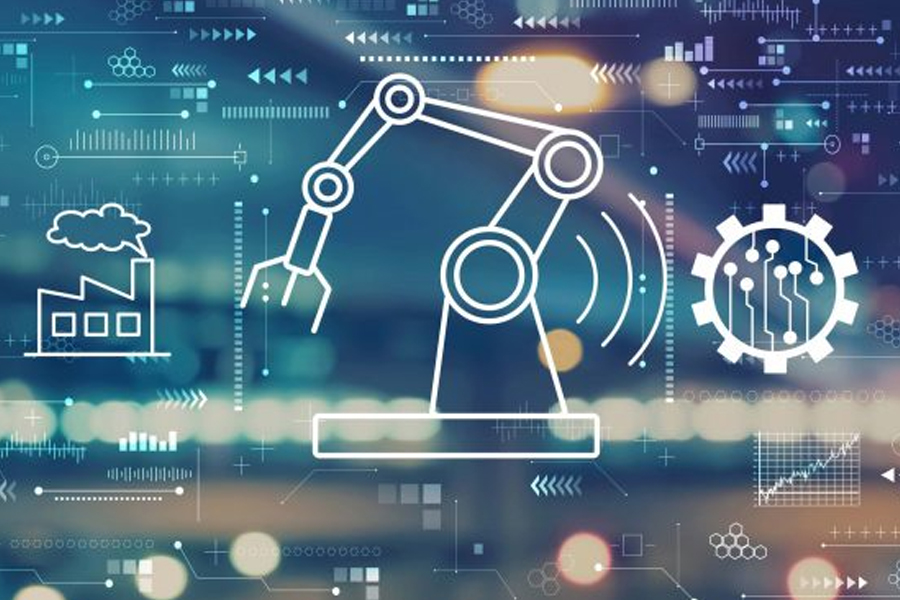Industry 4.0- Fourth Industrial Revolution
Industry 4.0 refers to the current trend of automation, data transmission, and autonomous decisions making in manufacturing technologies such as cyber-physical systems, the Internet of things, cloud computing, Healthcare, cognitive computing, and the creation of smart factories.
The terms "Industry 4.0" and "fourth industrial revolution" are frequently used interchangeably. It is distinguished by, among other things,
- Even more automation than in the third industrial revolution, the bridging of the physical and digital worlds enabled by Industrial IoT,
- A transition from a centralized industrial control system to one in which smart goods dictate the manufacturing stages.
- Intelligent machine and process networking for industry using information and communication technologies
- Closed-loop data models and control systems,
- personalization/customization of product on the basis of user preferences.
The objective is to allow autonomous decision-making processes, real-time monitoring of assets and processes, and equally real-time connect value creation networks through early stakeholder participation and vertical and horizontal integration. It incorporates the transfer of autonomy and )autonomous decisions to cyber-physical systems and devices through the use of information systems.
With the migration to the cloud, the growing relevance of IoT, and the need to integrate systems with the relevant innovative products, the solutions landscape in the ongoing integration of IT and OT is evolving. It presents several problems, including those related to value generation, connected data, and security, to mention a few.
Interoperability, virtualization, decentralisation, real-time capabilities, a service-oriented approach, and flexibility are all fundamental design elements in the dramatically altering architectures of diverse industrial systems as we know them.
At smartData, we stay up to date on the newest developments in order to help our clients on their quest for digital transformation.

